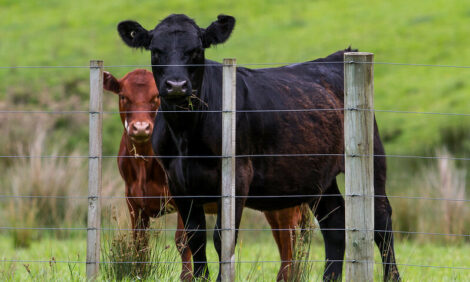



Towards Integrated Animal Health: Food Safety Surveillance in East Africa
UGANDA - Animal diseases have wide ranging impacts on both animals and people, from decimating livestock and wildlife to threatening public health, compromising food safety, food security and crippling livelihoods.Drivers of the emergence and re-emergence of these diseases are just as varied as their impacts, with pathogens surfacing in domestic animals, wildlife, the environment and along the agri-food production and distribution chain. Therefore, prevention and control activities must be just as wide reaching.
Funded by the Government of Ireland under the One Health agenda for improved health of people, animals, plants and environment, the UN Food and Agriculture Organization (FAO) held two workshops (one regional, one national) in Entebbe, Uganda. The goal of the workshops was to promote the enhancement of disease surveillance in Sub-Saharan Africa by strengthening connections between animal health - and food-safety-related disciplines.
Held 23–25 January 2013, the regional workshop was organized by FAO Emergency Prevention System (EMPRES) Animal Health and Food Safety in collaboration with One Health Central and East Africa. Over 40 experts covering animal health, food safety and wildlife fields attended from 11 East African countries and the African Union Interafrican Bureau for Animal Resources.
Through focus groups and forum debates, participants discussed how to use One Health principles and practices to enhance: i) regional surveillance networks by better linking health (including animal diseases and veterinary public health) to food safety; ii) early warning and rapid alert capacities in animal health and food safety at the regional and country level; and iii) management of risks related to the interface of humans, animals, the environment and the food chain. Upon conclusion participants generated a set of bold, next steps required to implement One Health in the region:
- conduct assessment of surveillance capacities in animal health and food safety at regional and national levels;
- prioritize the identified needs through participatory processes across the related disciplines and involving different stakeholders;
- establish and/or improve national and regional networks on animal health surveillance and food safety; and
- harmonize and consolidate animal health and food safety information systems and tools across East Africa.
FAO designed the national workshop around information systems and tools for disease surveillance and reporting in Uganda. Organized by experts of the FAO Global Early Warning System program, the workshop was held on 25 January 2013.
Participants came from:
- National Animal Disease Diagnostics and Epidemiology Center;
- Ministry of Agriculture, Animal Industry and Fisheries;
- College of Veterinary Medicine, Animal Resources and Biosecurity;
- Uganda Wildlife Authority;
- District Veterinary Office of Napak,
- Nakapirirpirit Districts from Karamoja ecosystem.
The objectives of the workshop were to: i) gain knowledge on existing disease surveillance initiatives and information systems strategies in Uganda; ii) support the development of a national strategy for the development of disease surveillance and animal health information systems; and iii) identify innovative tools that could enhance national capacities for disease information management and reporting.
The workshop was divided into two sessions: one on animal health information systems at national, regional and global levels and the other on how to improve the quality and timeliness of disease reporting and information gathering by using mobile devices. Attendees identified a strong need for the harmonization and innovation of information systems in Uganda.
Discussions cited other relevant, on One Health efforts also funded by Ireland for the region, including: i)the application of a pilot activity in some districts in Uganada for the use of the EMPRES-i Event Mobile Application for timely disease reporting to the National Animal Disease Diagnostics and Epidemiology Center; and ii) risk modelling activities for priority diseases in countries of East Africa to support prevention and early warning activities such as Rift Valley fever and peste des petits ruminants.
This will be implemented in collaboration with the International Cooperation Centre of Agricultural Research for Development (CIRAD). The latter, all participants agreed, represent key support to the prevention and control of these two priority animal diseases so devastating for countries in East Africa.
TheCattleSite News Desk


